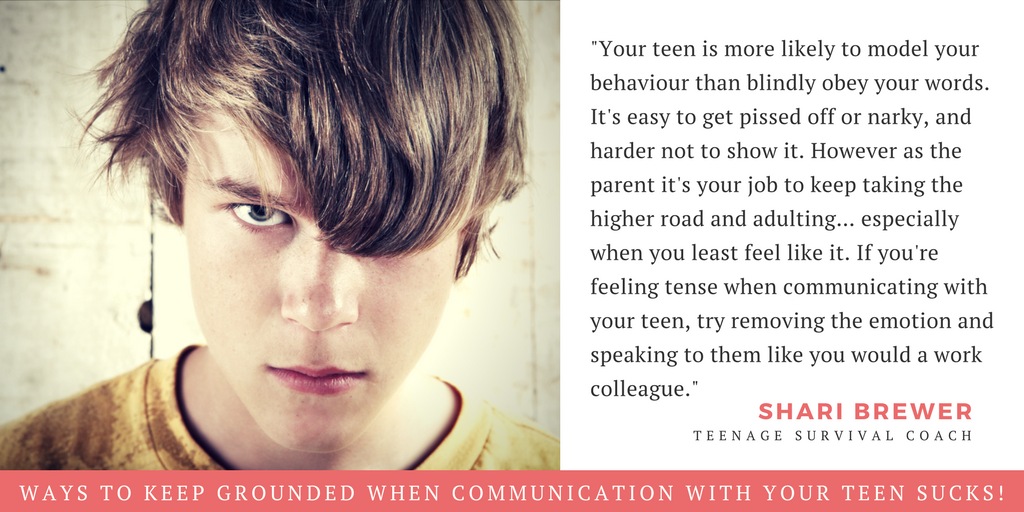Being a teen is full of wonderful adventures and YOLO moments…. but being the parent of a teen is bloody stressful. Even though you were once a teen before you become a parent (of course!) we all know ‘the times they are a changing’ and this iPhone generation lives in a world very different to that of our youth. Communication is now happening more and more through the great technologies we have, and this can certainly impact on the connection between people and definitely the communication between you and your teen. The parent and teen relationship has always been fraught with challenges, and avoiding them really isn’t possible, so being prepared is key.
Communicating with a teen is a bit like a lucky dip – some times what you manage to pull out of the box is better than you hoped for… and other times it’s just plain old shit. It’s unpredictable at best and heavily influenced by factors you may not be able to control. So how then can you stay grounded when communication with your teen hits a wobbly patch?
Remember you are the adult and communicate by example. Your teen is more likely to model your behaviour than blindly obey your words. It’s easy to get pissed off or narky, and harder not to show it. However as the parent it’s your job to keep taking the higher road and adulting… especially when you least feel like it. If you’re feeling tense when communicating with your teen, try removing the emotion and speaking to them like you would a work colleague.
Stay Calm, respond don’t react. Tracy McConnell form the series ‘How I Met Your Mother’ has this piece of advice. “Sometimes even three deep breaths can change everything.” Just stop, do some deep breathing and calmly say what you wanted to say. If you need to walk away and gather your thoughts before responding…. do it! Blurting out an initial reaction without thinking it through may just bite you on the bum later on so it’s way better to delay the conversation and be calm.
Give them praise where you can. Recognise all the little efforts they make and mention your appreciation. If they feel the only time you speak to them is when they’re being corrected or disciplined, communication will remain challenging. Praising and acknowledging your teens can build their self-esteem and usually motivates them to keep seeking positive interactions with you.
Don’t nag. Yes, easier said than done isn’t it? Repeatedly pointing out your teen’s wrongdoings never helps your relationship and as teens are often sensitive it’s easy for them to take nagging and criticisms as a personal attack, even when you don’t intend it that way. Likewise, arguing, yelling and intimidation aren’t effective ways of trying to resolve issues with a teen. Instead speak to them… and listen too.
Ignore their shrugs…. and grunts. Sometimes teens seem disrespectful, but they’re not intentionally being rude. Grunts and shrugs to them are valid forms of communication and a language fluently spoken by most adolescents. It’s also a behaviour that annoys most parents no end. My advice is return to the above second point and stay calm. You can just keep on saying what you were intending to without reacting, or better yet, make time for the conversation later when they are likely to engage more actively.
Laugh and show you have a sense of humour. Try lightening the tone of your voice…. it really does help. Yes, you may be upset and angry with them but avoid wasting precious energy on conflict. Looking for the humour in a situation can put a new spin on things and you may even find yourself laughing about it with your teen. If not, laughing about it behind their back is a-ok too!
Remember, you were once a teen. Understand they’re seeking their self-identity, just like we all were at their age. Sometimes that means they’ll act in a way that begs for adult attention and at others times their behaviour can be highly secretive. You know your teen best, and so understanding how to read their moods and meet their communication needs is a skill worth working on. And persisting when it gets har…. which it will. You’ve been there, so guide them instead of judging them.
Of course there’s no magic wand and the parent-teen communication journey is slippery ground. Just being there and having them understand you’re available when they are ready is a good game plan to practice.

